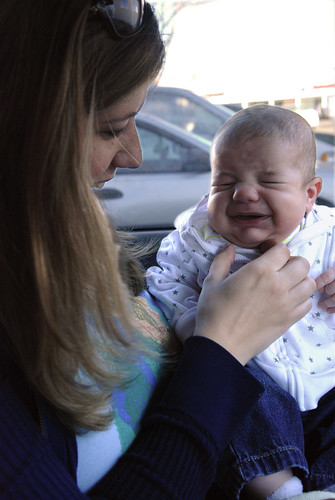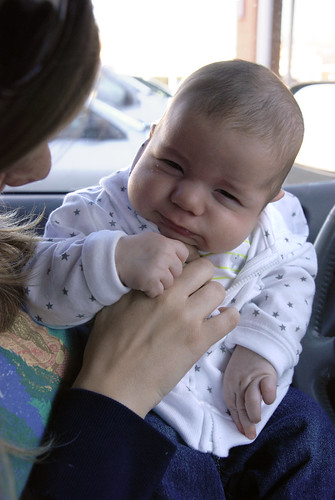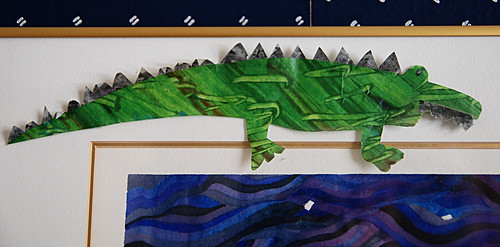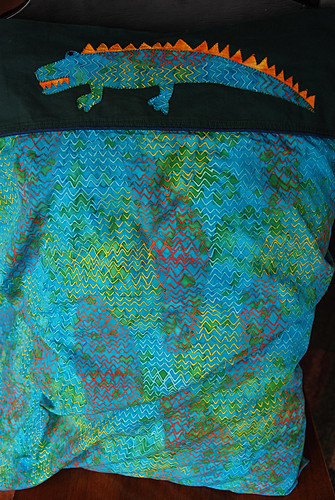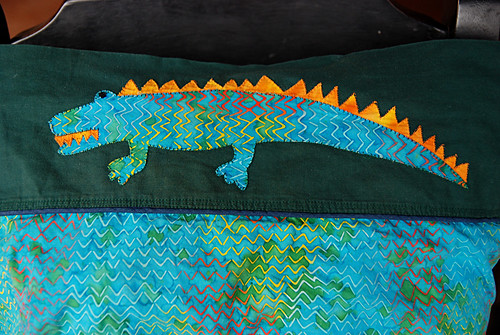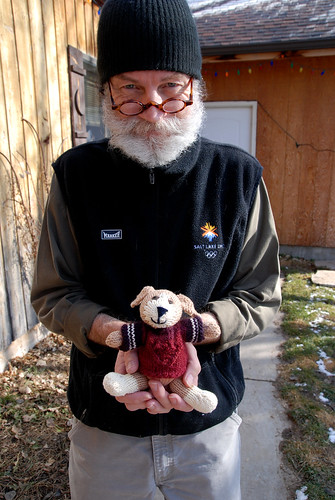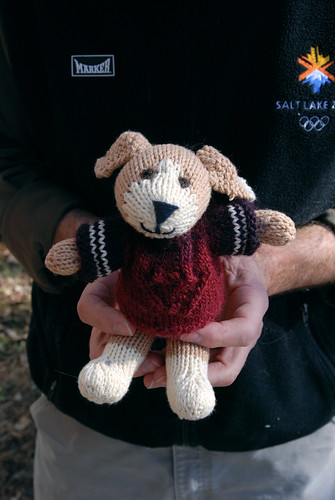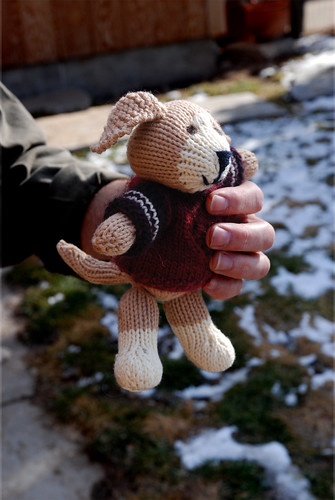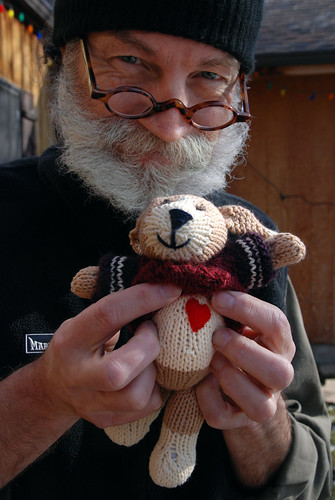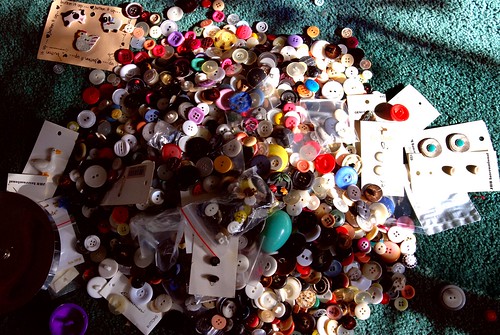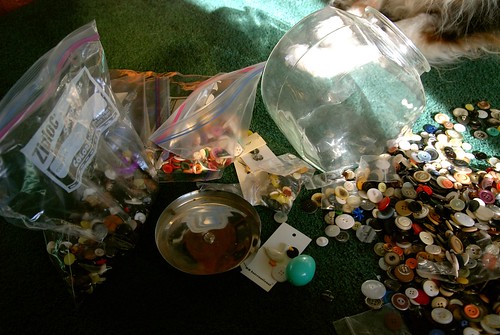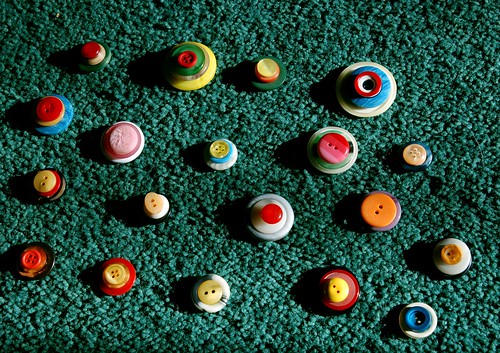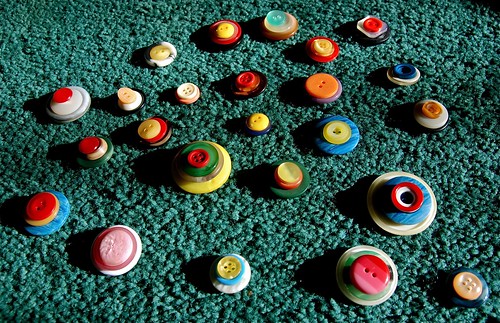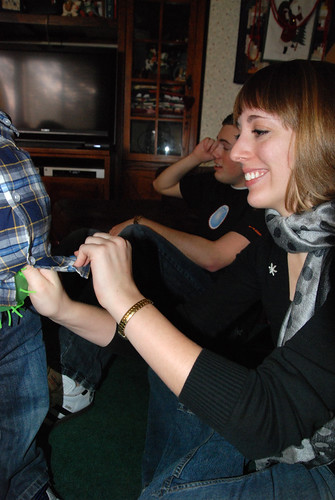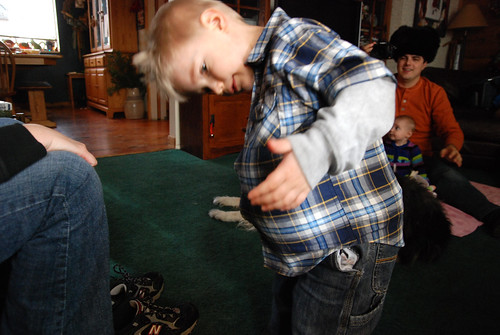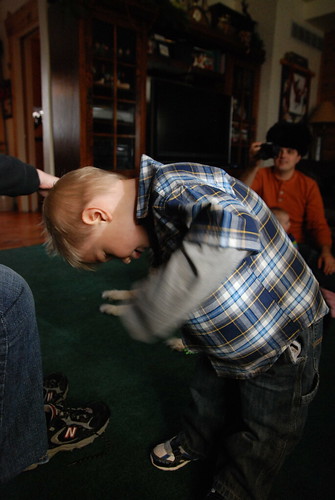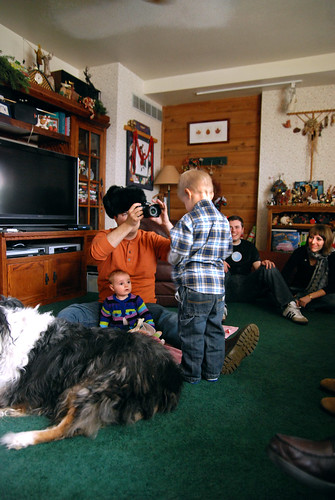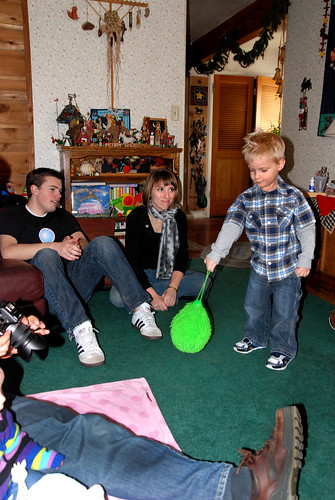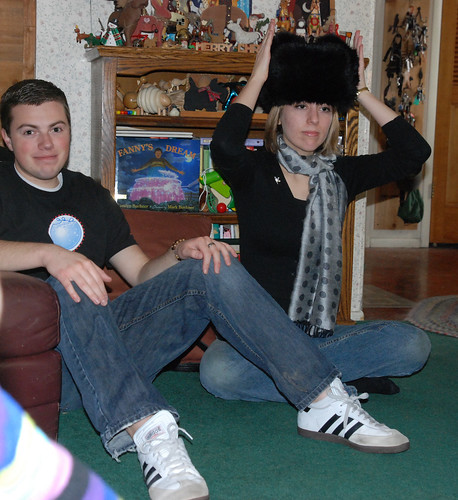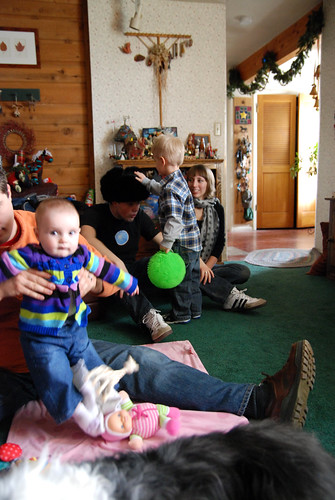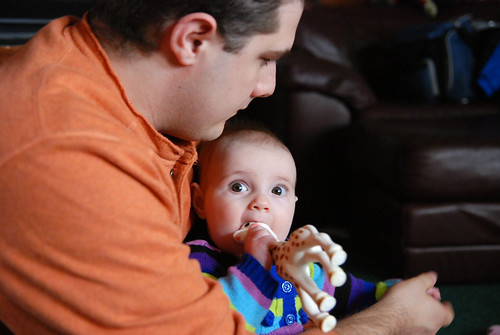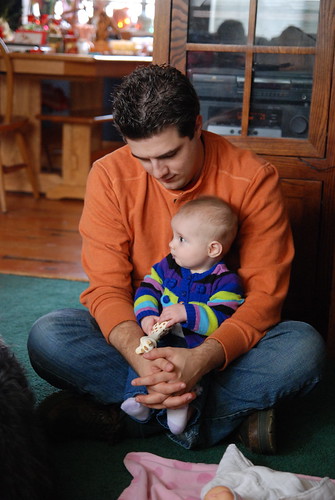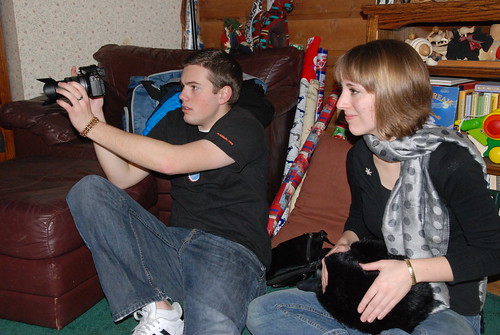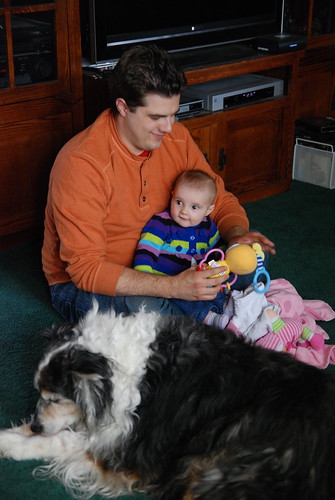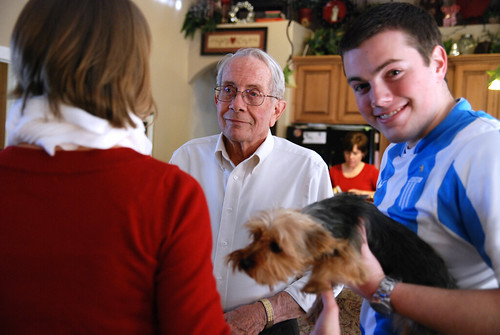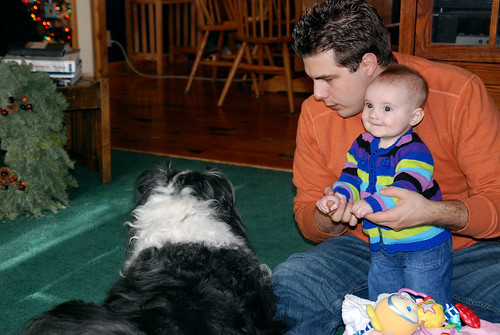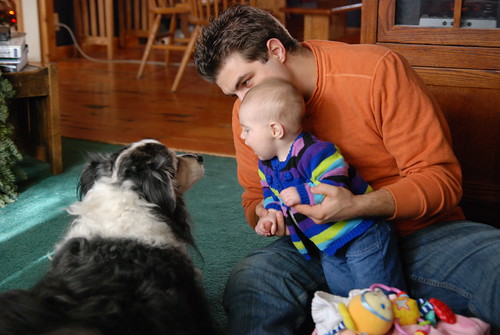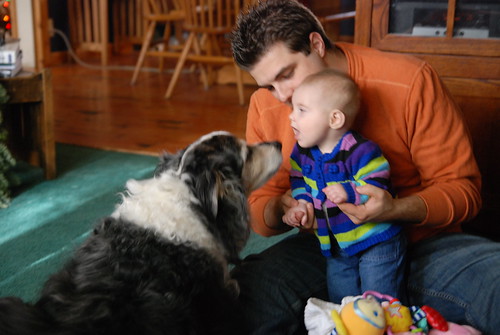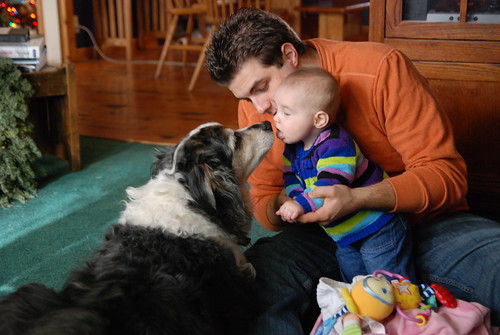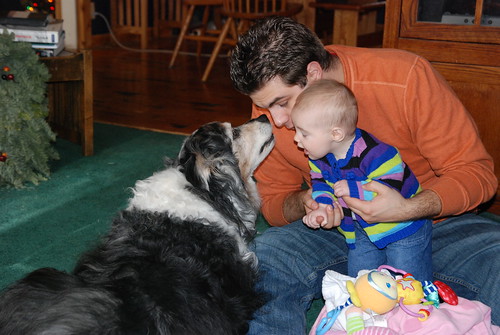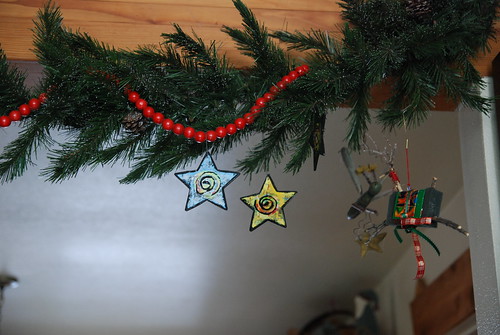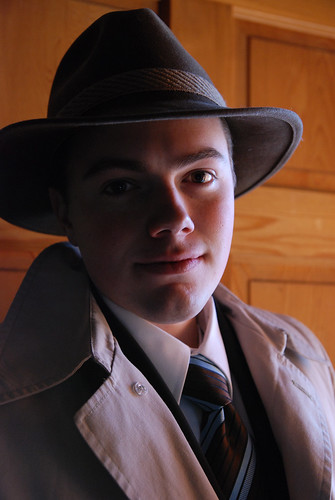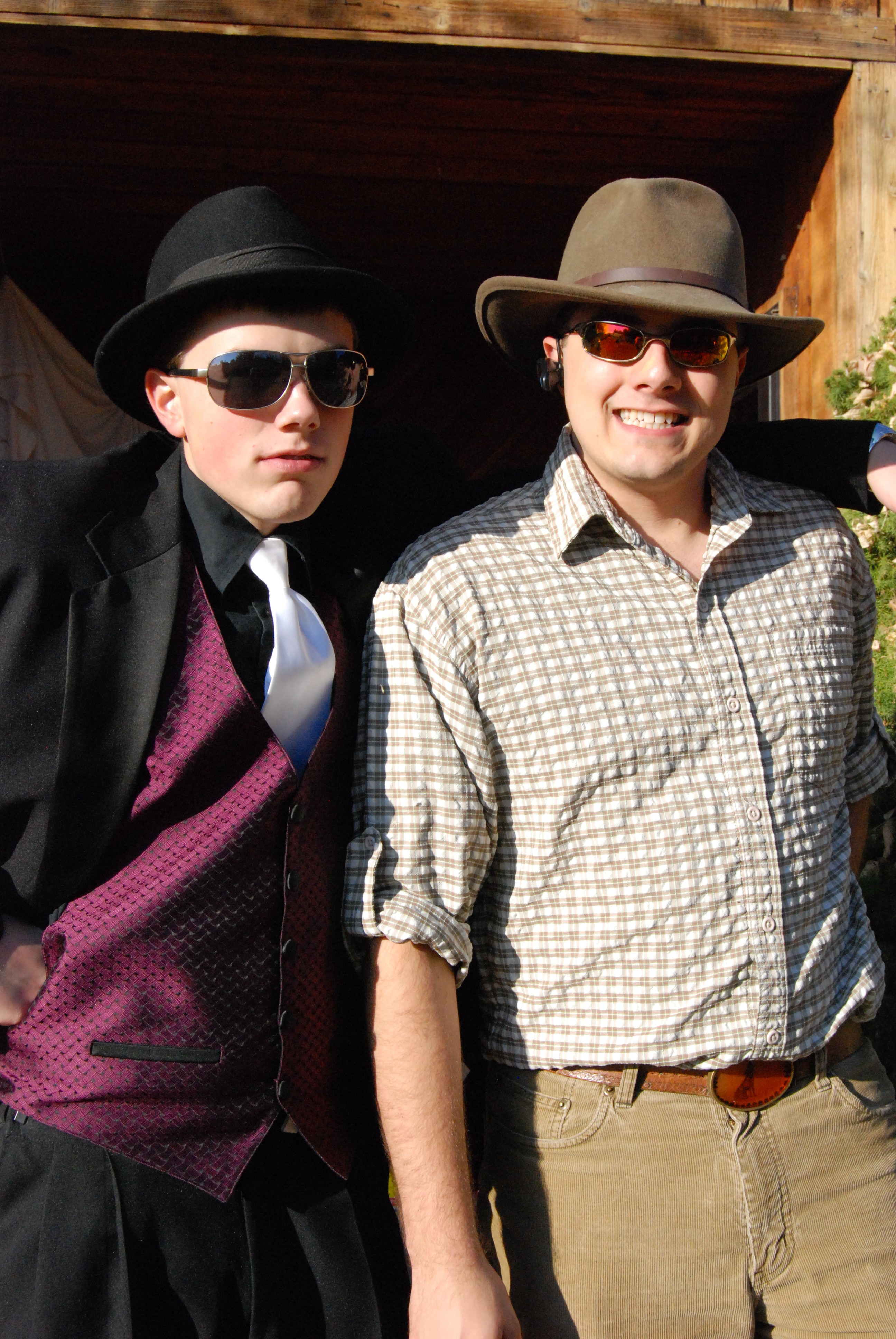About moving past parenthood: a story
Sam’s wife Dakota (I smile happily) was a lovely little girl. Maybe even spoiled because she was so cute and smart and charming. Did well in school. Had friends. Went to college. Once there, cleverly and determinedly worked the system. Very impressive. Much promise. Graduated with a degree. Maybe two.
Got married. Lovely wedding. Very green conscious, good at nutrition and exercise and wearing seatbelts, she planned the life to come. Was excited about having children, and resolved to educate them herself, as far as she could do it.
Then she got pregnant and threw up for three months. Exercising became academic. When she did start to exercise, she twisted her ankle. (I did that, actually.) And she craved raspberry glazed donuts. (Umm – I did that, too.) So she put on a little weight. (yeah)
And the baby, once he came, decided that night was day and day was night. (He continued under this misapprehension for about one and seven-eighths years.)
From the beginning, Dakota had had to talk him into nursing.
Hard to get that weight off when you’re dealing with a tiny soul and getting no sleep.
So, she ended up too heavy, sleep deprived, and really kind of shocked to find that you can’t have an actual conversation with a baby—not for years, and that, once babies grow into toddlers, their first passionate directive seems to be to find a way to kill themselves – sticking their fingers into light sockets, climbing up and leaning against second story windows, swallowing large round objects. And that they never stop moving. Ever. And when you say to them, “Come here,” they instantly move very quickly in the opposite direction. Thus, you can’t take a break from keeping an eye on them, not to read a book, not to talk on the phone. Not even to go to the bathroom.
And before she knew it, she had three little children, all two years apart.
Charming, smart, spoiled Dakota has become distressed, worn-out, puzzled and out-played Dakota.
But she kept them all alive, and built all her days around training them, and loved them so much her heart could hardly hold it.
For the next twenty two years, she continued to train them—which required that she understand each personality individually – needs, fears, personality patterns – and that she tailor the training to each child’s wildly different set of requirements and conditions.
She lived each day pleased, proud, frustrated and heartbroken by turns. This was the greatest, most dynamic project she had ever undertaken. She had done more research for this than she’d done for any grade in any school. She had out-studied thousands of research scientists, but ended up with nothing publishable, only a powerful instinct and a love and a mighty willingness to sacrifice everything for the good of her kids.
She turned out to be the undisputed expert in the field of her children. (not worth much to the world at large – but -)
She was powerful.
And they loved her with a powerful, integral, elemental love.
And then they grew up.
At this point in the story, don’t worry—I am not going to go all drippy and empty nest.
Her children have become everything she hoped they would be: they are flawed, but good—disciplined, fun, hard workers, independent and eager to stride forward into their own lives.
Which leaves her in a house of learning – but without anything immediate to which she may apply much of it.
Kind of like the day after Christmas.
Clean up. woo-hoo.
And now – who is she in the world?
The point is, you hear about women who become depressed and sad in their After-Real years, the complain being that they are no longer “needed.”
What this actually means, to my thinking, is that these women are all standing firmly in the middle of their paths, just where they have been standing for the last many years – where they once fit so well. But their mountains have turned to ocean. And the climbing gear? Won’t work there. Suddenly, the powerful, god-like mother is just a person.
If she’s done her job right, the All Knowing Mom (the one who taught them about art and photography and music and writing) is now being out-done by children who have turned her skills into careers. They are all taller than she is.
And in most ways, they don’t need a mommy any more. As adults, they certainly don’t need another adult giving them helpful little hints about how to run their lives. They can make money, decide how to deal with their own friends and fellow-real-adults, and make their own Thanksgiving dinners. Without help.
Without needing permission.
If Dakota doesn’t like the way her daughter (or scarier, her daughter-in-law) is handling her children, too bad. Imagine a friend, someone you really like, who nonetheless is letting her children get away with stuff you’d hang them from the rafters for. Can you say anything about it to this friend without losing her? Yeah. That’s the position Dakota is in now with her own kids and their chosen partners.
If Dakota hasn’t quite succeeded with one or all of her own children, and they are spiraling out of control, ditto. And the only help they will probably look for from mom is monetary. Or babysitting.
Which all sounds bleak. UNLESS (I had this epiphany down in Santa Fe) Dakota can actually get it that the world has changed around her, and she needs to create a completely new relationship with it.
By the way, same with fathers. Read that paragraph just above and substitute the male pronoun. Because there are a lot of fathers out there who hit their heads against a new glass wall: Dad’s approval is no longer the ultimate exaltation or damnation. And dad’s commands no longer fly. And when Sam says, “I’m still the father around here,” in reference to his grown-up-out-of-the-house-self-supporting children, he is simply = wrong.
(side note: you may have noticed that I am writing as though mothers stay home with their kids rather than focus on careers. They always say, “Write what you know.”)
This story ends up well for Dakota.
She, with all that intelligence and promise of her young years, did this: she kept learning all through those Real years. As she taught her children, she learned tons herself – she learned processes and psychology and self-discipline. And she learned to play with her kids and let her expectations of play grow up as the kids grew up (while NEVER forgetting to be the mother – that’s important, that she knew who she was and was true to that). She did a lot of talking with her kids and listened to them. Listened for HOURS. And maybe even from the very beginning started learning FROM them.
In this way, she wove together two different selves: Dakota the mother and Dakota the fellow human being.
And as she did this, her kids learned to trust her. They trusted her love, her patience, and her fierceness. They actually came to her when they had stuff to talk through. Each friendship was different because each kid was different. She was still their fence, their coach, their guardian and boss – but gave them plenty on this side of the fence to give them reason to respect her and want her around.
And she kept a weather eye on the horizon, watching the world morph as it came. Eventually understanding that other people were coming who would be first in her kids’ lives – sweethearts, spouses, kids. And preparing herself for that. Because hey – wasn’t that what she’d been training them for all along? So she could release them into the wild?
She suspected that creatures that way, once released, have a tendency to come back from time to time, all on their own.
And she never forgot her own life – the one that got shelved during that first bilious three months of pregnancy. She had her own sweetheart. And the million things she wanted to do but couldn’t through all those years of keeping an eye on those kids? NOW SHE COULD DO THEM – AND DO THEM BETTER. (twenty five years is a long time not to go to the bathroom – so to speak).
In other words. While Dakota was a mother, she was also still Dakota. Her sense of being had changed as the world changed around her—an identity flexible and serviceable, evolving toward strength and independence. And all the learning, and all the striving, and all the love only made her more Dakota – so that when the kids grew up and flew away, she could too.
In the end, while she had been careful to be a friend but never a peer to her growing children, now she was free, indeed, to be both friend and peer. And playing with them suddenly became the Most Fun Ever. Her children are now her friends. Her relationship with her daughters no longer looming mother to small child, but instead, woman to woman.
And the kids still love her and need her and want her attention. But they have to wait their turns. Which makes all those things all the more valuable, rather than less. And Dakota, who started off with a thin but pleasant little self, has now defined herself in massive, explosive, remarkable ways.
Now. I find myself in the embarrassing position of having to admit that there’s still one more part. The end. There is an end. But this is not it. Soon. Soon. Wait – are you still here? Are you still AWAKE????

